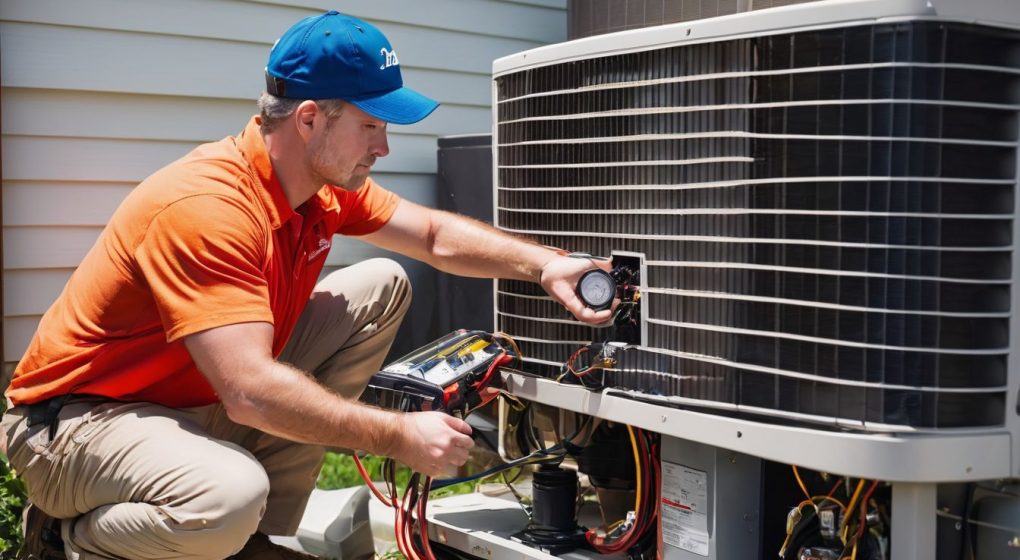
Aircon gas is what makes our air conditioners keep us cool. Sometimes, things go wrong, and we need to fix them. We can find 15 common problems like leaks or dirty parts that stop our AC from working well.
If water drips inside our house, it might be because of a blocked drain, which we can clean with a vacuum. Leaks in the system are bad for the planet and can make us sick; fixing these fast is important.
When filters get dirty or the coil freezes, the aircon won’t cool properly; cleaning helps a lot here. A broken thermostat could mean your AC won’t switch on; this usually needs someone who knows how to fix it.
The compressor works hard to push cold air out but if it gets damaged by dirt or not enough lubricant, we won’t feel much airflow.
Fans in an AC should not make too much noise. If they do, there might be something stuck inside or worn-out parts that need changing soon. To avoid big issues like your system turning off on its own too often – known as short cycling – change your filters often and get your unit checked every year.
Keeping our air conditioners running smoothly means being clever about their care so they don’t break when we most want cool air.
Common Problems with Aircon Gas & Their Solutions
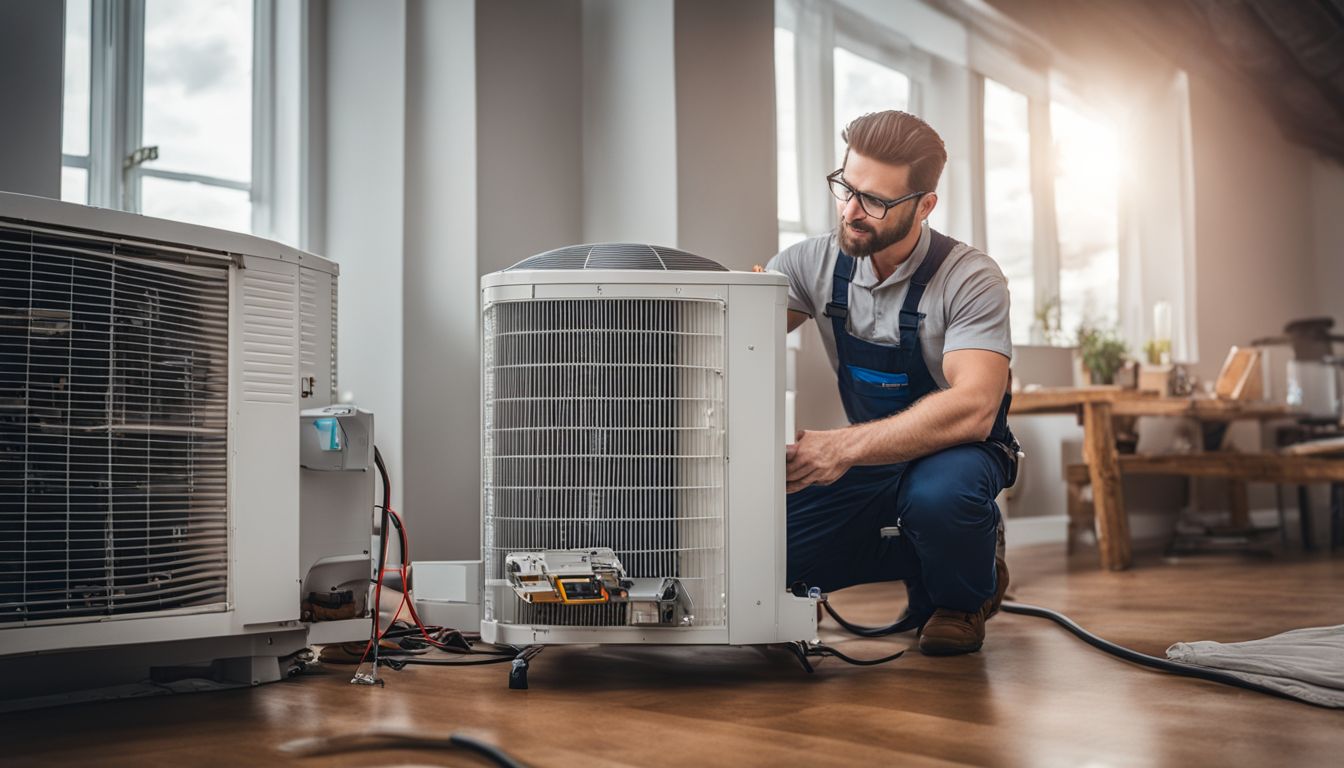
Discover the remedies to the most perplexing aircon gas dilemmas that often disrupt our comfort and climate control. From ineffective cooling to perplexing water leaks, we navigate through practical solutions to restore your air conditioning system’s functionality and efficiency.
AC Not Cooling
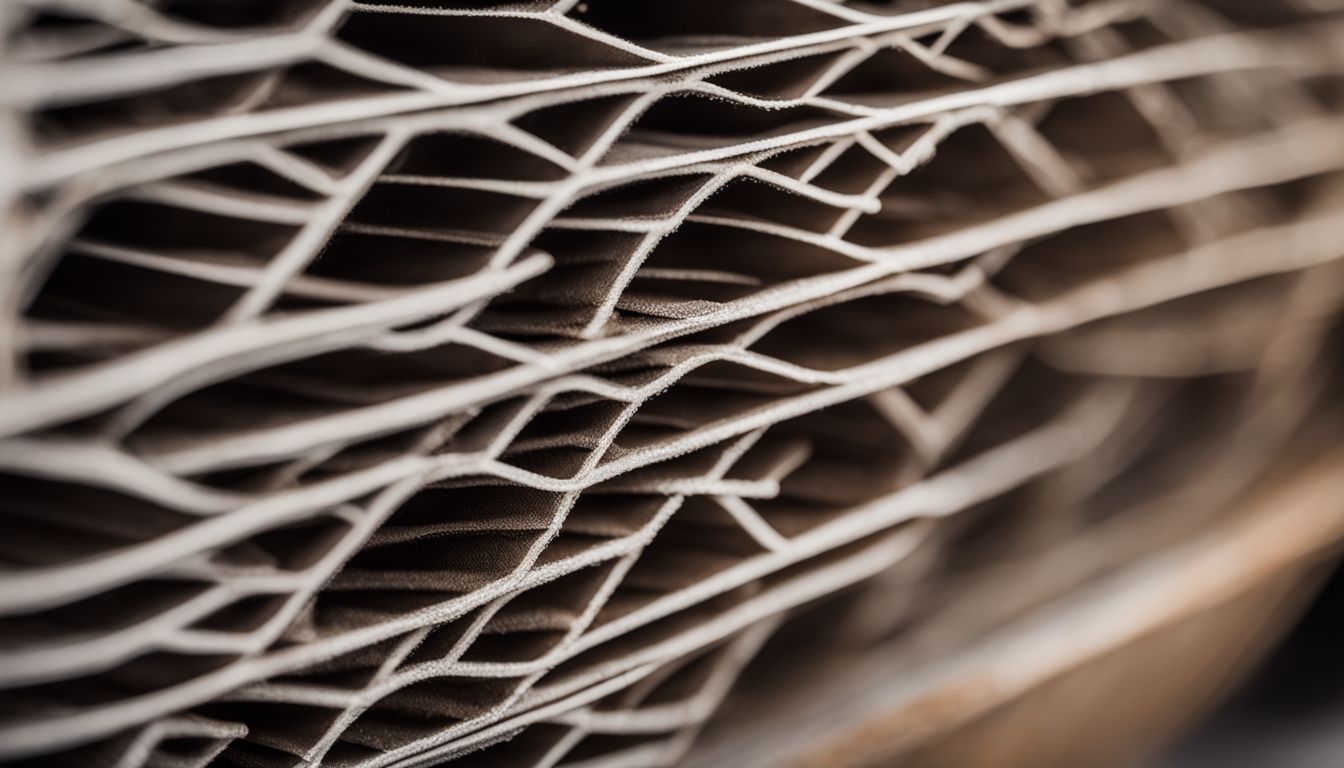
Your AC might stop cooling for several reasons. A refrigerant leak is a common culprit, causing your air conditioning system to lose its ability to chill the air effectively. Check your unit for hissing sounds or ice on pipes, which can signal this issue.
A dirty filter also stops cool air from flowing through your home. Dust and debris block the airflow making the system strain and fail to cool properly. Always keep filters clean to avoid this problem.
If you face weak airflow from vents, inspect both evaporator coils and condenser unit outside. Dirt should not cover these parts as it affects how well they work.
Damaged compressors lead to significant cooling issues too. This component pumps refrigerant through the AC, vital for heat exchange process that cools the air indoors. If faulty, you need a professional HVAC technician to fix it right away.
For each issue related with AC not cooling, solving fast prevents more damage and saves energy consumption in your home’s climate control system.
AC Leaking Water
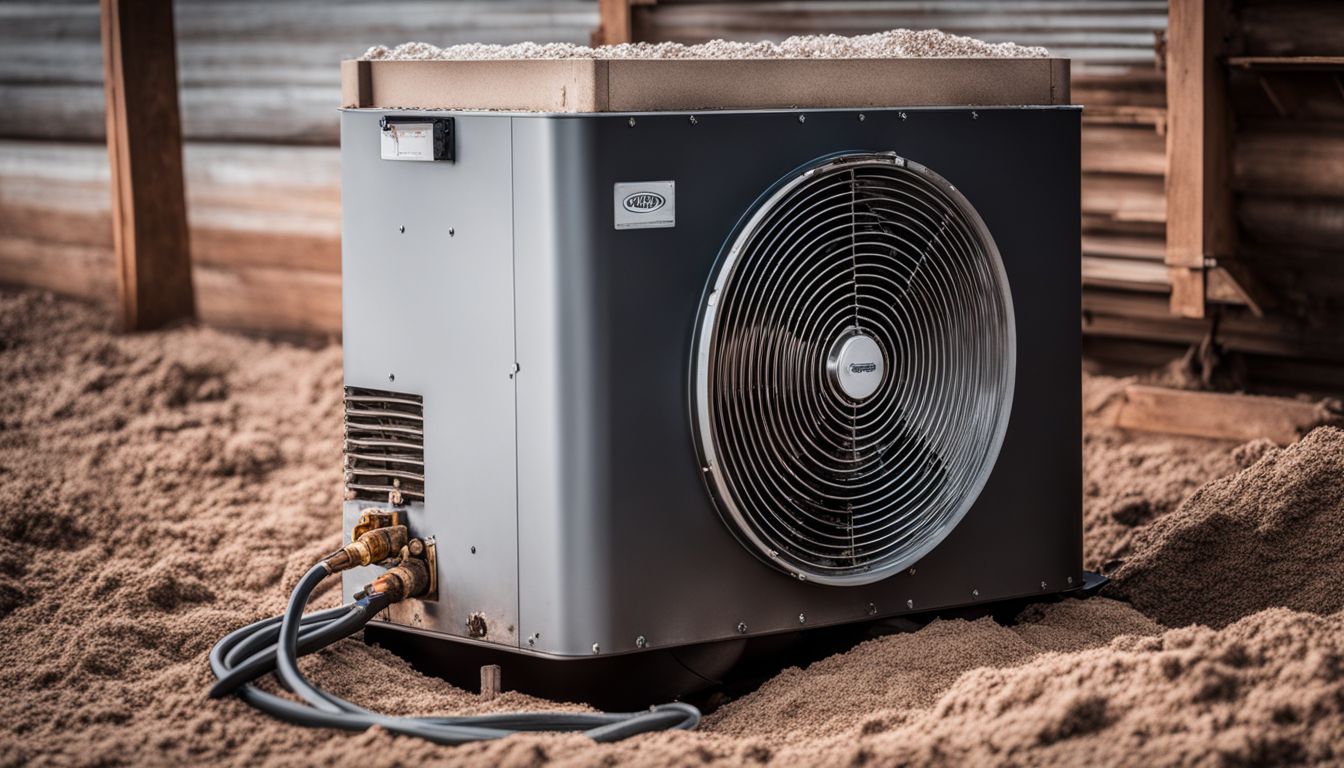
Water dripping from your air conditioning unit signals trouble. It often means the condensate drain has clogged up with dirt, insects, or other debris. Clearing this blockage is crucial to get things working again.
Sometimes the problem lies in a broken condensate pump which needs fixing or replacing to stop water from leaking.
A frozen evaporator coil could also be the culprit behind water leaks. This freeze happens when there’s low airflow from dirty filters or if refrigerant levels drop too much. You’ll need to thaw the coil and tackle the source of freezing for a lasting fix.
Moving on, let’s look at what causes an AC not to turn on.
AC Not Turning On

Check your circuit breaker if the air conditioner won’t turn on. A tripped breaker can cut power to the AC unit. Reset it and try starting your AC again. If this doesn’t work, test other appliances in the house to see if they have power.
Look at your thermostat next. Make sure it’s set properly and working right. Sometimes, a simple battery change is all you need to get things going again. A faulty thermostat might require recalibration or replacement by an expert.
Now let’s look into what happens when there are thermostat malfunctions.
Thermostat Malfunctions
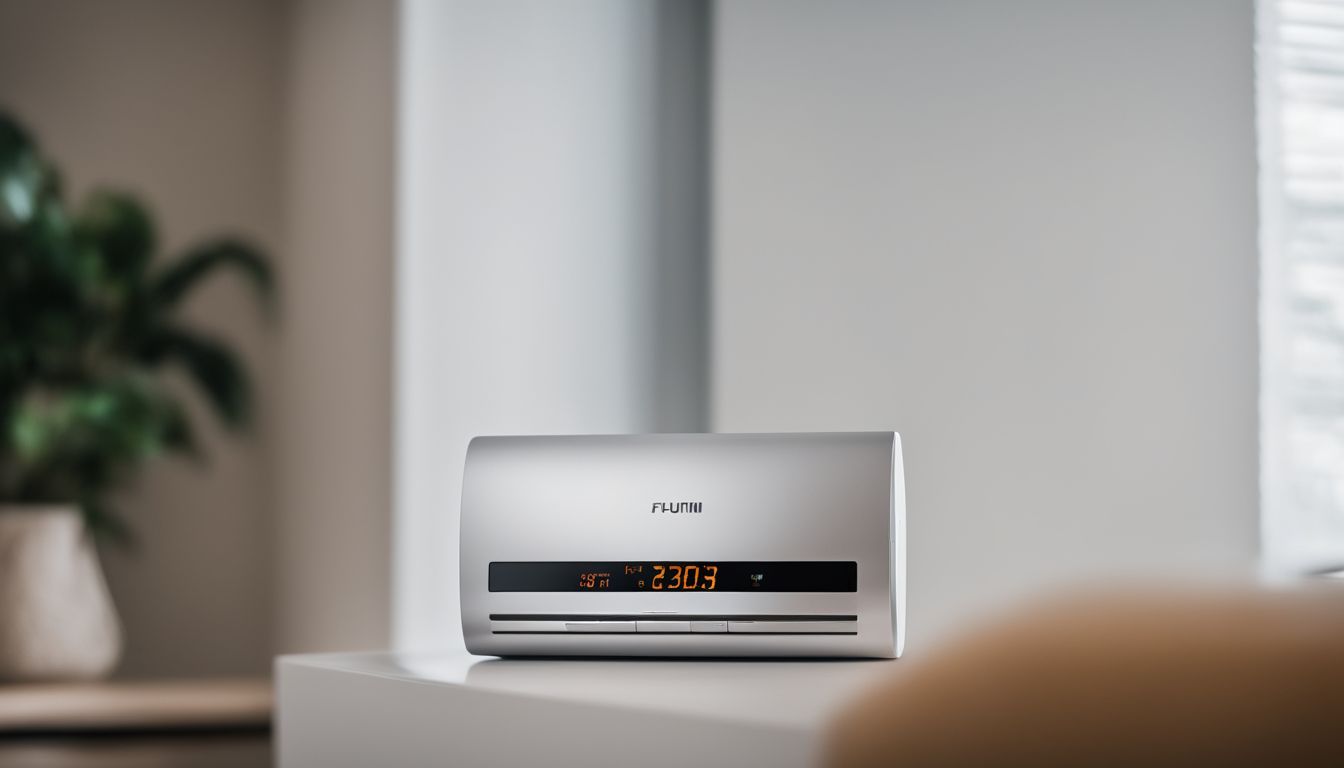
Thermostat issues can make your AC act up. It might not turn on, or it could blow hot air instead of cold. Your room stays warm and your energy bills may rise. To fix this, first change the batteries if your thermostat uses them.
If that’s not the issue, dirt might be causing trouble inside the device. A clean thermostat works better.
A pro from our team can come quickly if you’re in a jam with a faulty thermostat – often on the same day or the next one. Our lead technician uses 18 years of know-how to solve these problems fast.
Booking us is easy through WhatsApp for speedy service.
Moving past thermostats, let’s tackle condenser issues next.
Condenser Problems
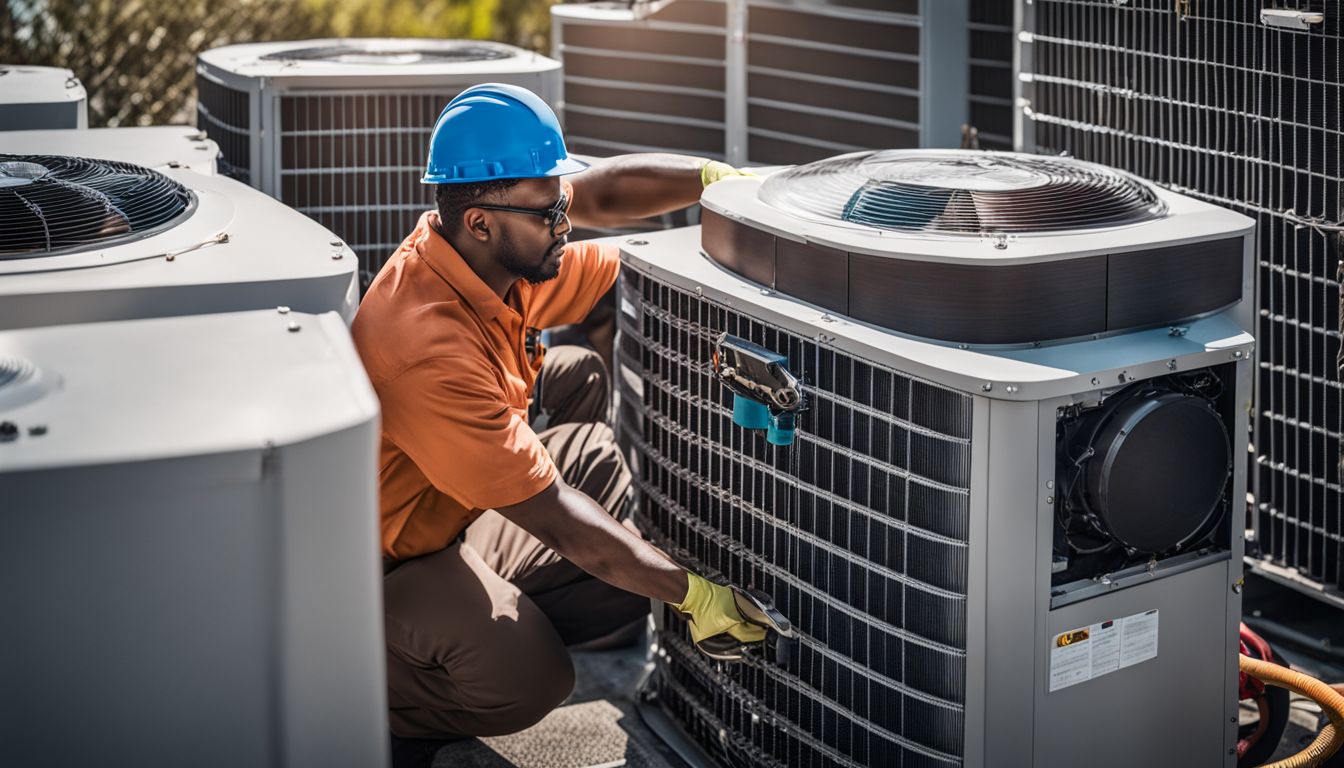
Condenser coils can get dirty and lead to issues with your aircon. Dirt blocks the air flow, making it hard for your AC to cool the room. You might notice your system is running more but not cooling as well.
Clean these coils regularly to avoid dirt build-up.
If coils are clean but you still face problems, check for damage or refrigerant level changes. Both can cause weak airflow and poor cooling. A professional may need to repair or replace damaged parts to fix condenser issues.
Regular maintenance checks will spot these problems early on and help prevent them from getting worse.
Evaporator Issues
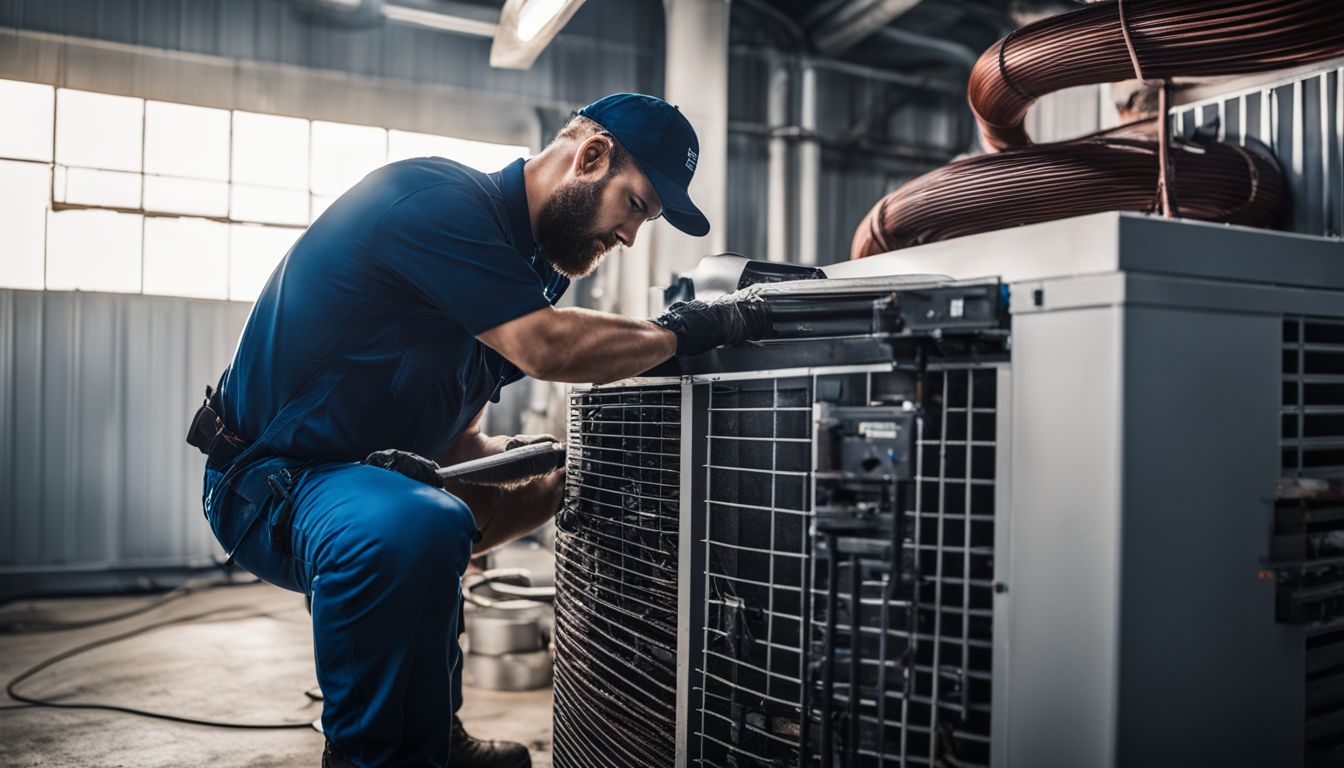
Dirt and ice can block your aircon’s evaporator coil. This stops the air from cooling down. To fix it, make sure nothing blocks the airflow to the coil. Check that your refrigerant levels are correct too.
The coil needs good insulation as well. If not, cold liquid inside can freeze and cause problems.
Sometimes, a dirty evaporator might be hard to spot. Watch out for signs like weak airflow or strange noises when your AC runs. You might need an expert to clean or defrost the coil safely so that your air conditioner works well again.
Keep the area around the evaporator clean to stop issues before they start.
Dirty or Leaking Ducts
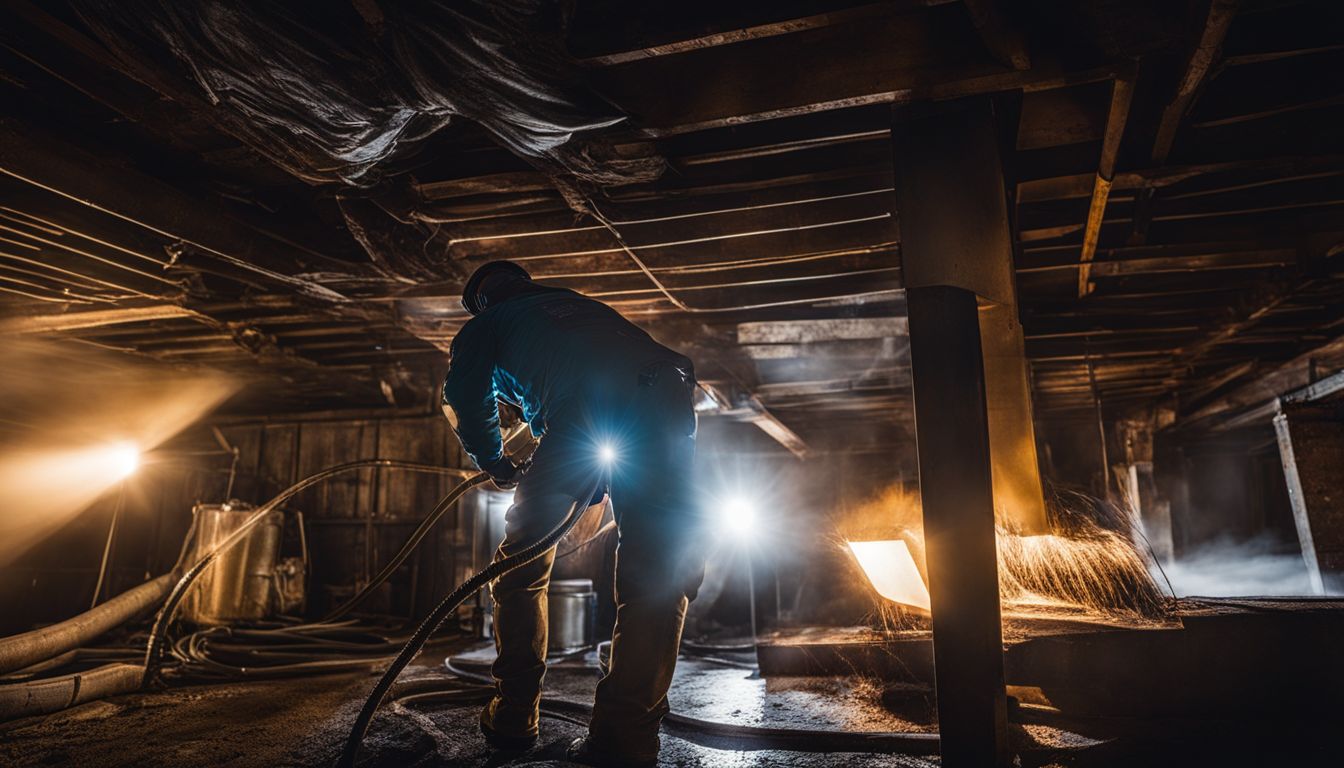
Moving from evaporator issues, dirty or leaking ducts are another headache for homeowners. These problems cause your cooling to drop and nasty odours to spread in your home. Ductwork should stay clean and intact to function properly.
If it’s damaged, cool air escapes before reaching your rooms. This leads to higher bills and less comfort.
Fixing leaks in the ducts can get rid of these troublemakers quickly. An HVAC expert can find the holes and patch them up. They might also suggest cleaning the ducts if they’re clogged with dust or mould.
Clean air ducts mean better airflow, no bad smells, and a healthier environment inside your house.
Noisy Fan
Fixing a noisy fan in your air conditioner is just as important as dealing with dirty or leaking ducts. A loud fan often signals that dirt has built up, parts are loose, or the motor might be failing.
Clean your fan regularly to stop noise before it starts and keep your AC running smoothly. If you hear strange sounds, check for loose screws or components right away.
Sometimes a noisy fan points to more serious problems like worn bearings or a broken motor. You may need an expert to fix these issues. Keep all parts well-oiled and tight to cut down on noise.
This will help you enjoy peace and quiet at home without worry about your air conditioner.
AC Short Cycling (Shutting Down Frequently)
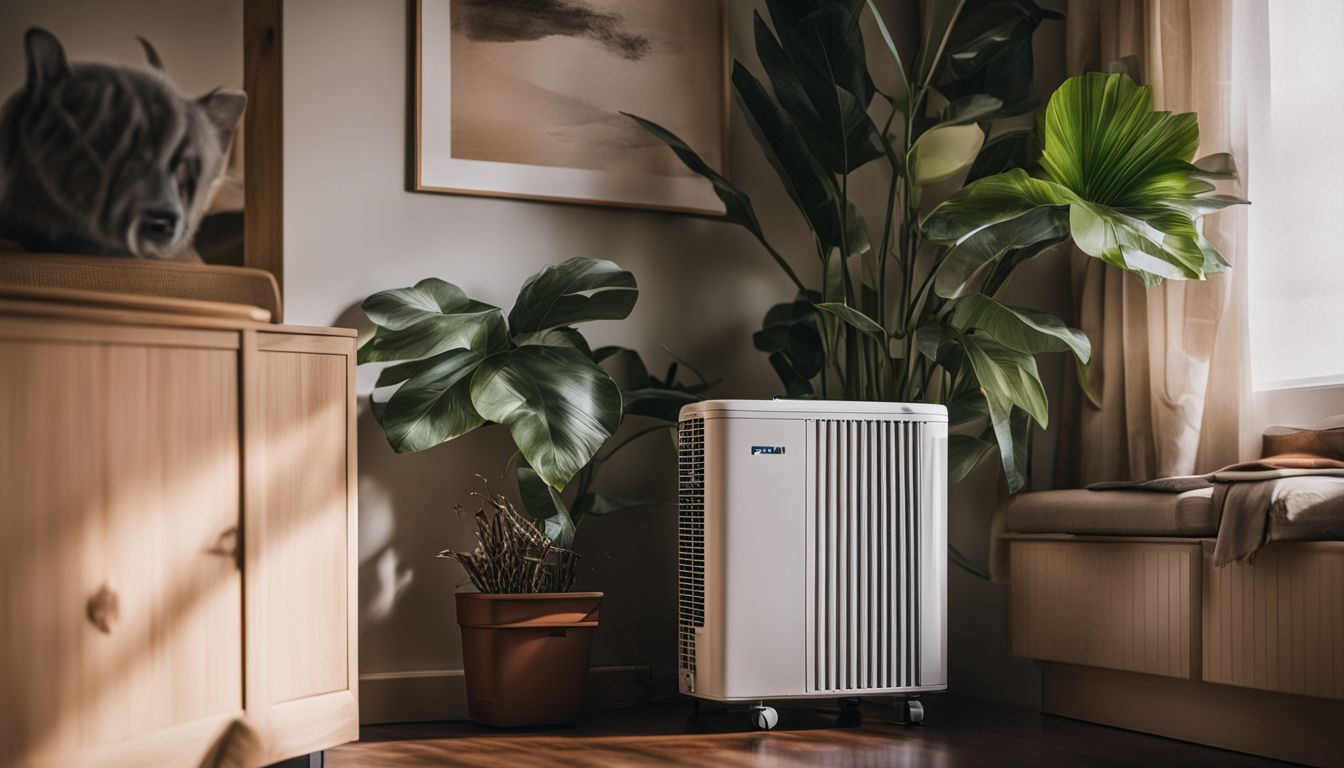
Your air conditioner might start to turn off and on too often. This is called short cycling. It’s not good because it can use more electricity and make your AC wear out faster. To fix this, first check the air filter to see if it’s dirty.
Clean or replace it if you need to. Sometimes, short cycling happens when there’s not enough refrigerant in the system due to a leak. If you suspect a leak, call an expert right away.
Short cycling could also be from other parts like the thermostat or a broken fan motor. Make sure your thermostat is set correctly and isn’t exposed to direct sunlight or drafts that might trick it into turning the AC on and off too much.
If these steps don’t help, ask an HVAC professional for advice before bigger problems happen.
AC Gas Leaking
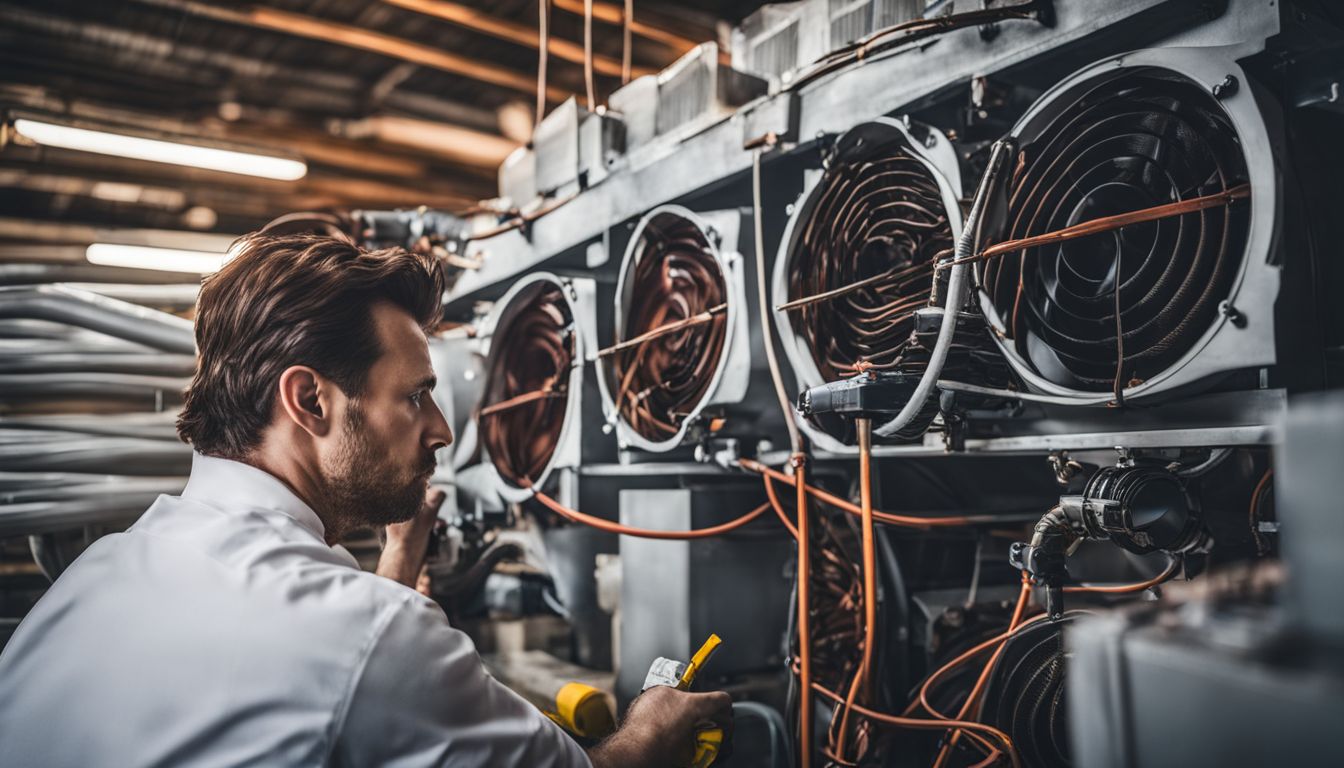
AC gas leaks can cause your air conditioner to lose efficiency. They are harmful to both health and the environment. If you smell something strange near your AC, it may be leaking refrigerant.
You should call a professional right away to fix it.
Leaks in the AC system often come from holes or cracks in the coils or pipes. An HVAC technician can check for these problems during regular tune-ups. Fixing leaks early helps avoid bigger, more expensive repairs later on.
It also keeps your air conditioning unit running well and safely.
Navigating Facts and Fiction: Aircon Gas Topping
Many people think they need to top up their aircon gas regularly. This is a myth. Air conditioners are closed systems; the gas doesn’t get used up like fuel in a car. If your aircon needs more gas, it’s usually because there’s a leak.
Fixing leaks is important for maintaining your system’s efficiency and protecting the environment.
Always call professionals for help with these issues. They can safely handle refrigerants, which can be harmful if not managed correctly. Regular maintenance helps spot small problems before they grow bigger.
Don’t wait until your air conditioner stops working or starts leaking harmful gases before taking action—schedule regular check-ups instead!
Tips for Troubleshooting Aircon Gas Issues
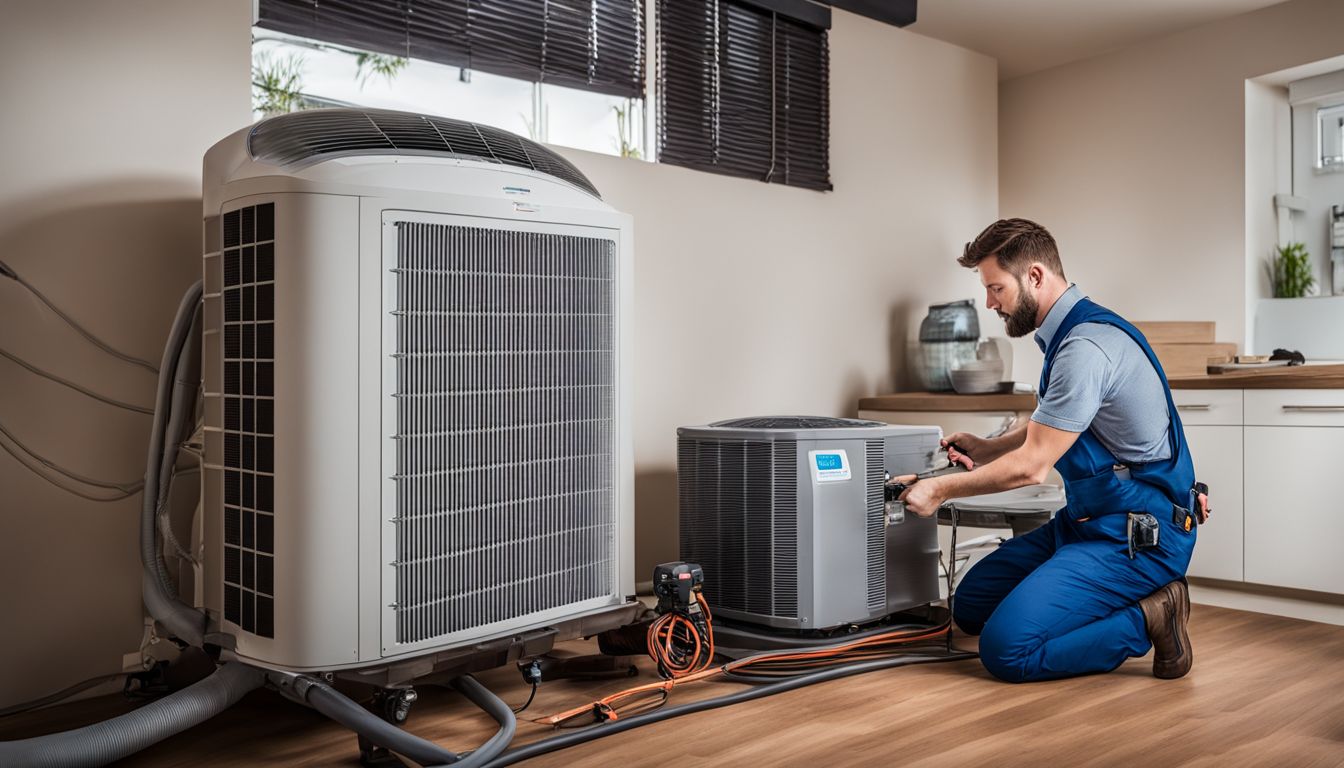
Ensuring your aircon runs efficiently hinges on proactive troubleshooting; by addressing common gas-related challenges, you can maintain peak performance and forestall potential breakdowns.
Delve into practical steps that are crucial in diagnosing and fixing issues before they escalate, guaranteeing a cooler, more comfortable environment in your space.
Check Your Thermostat
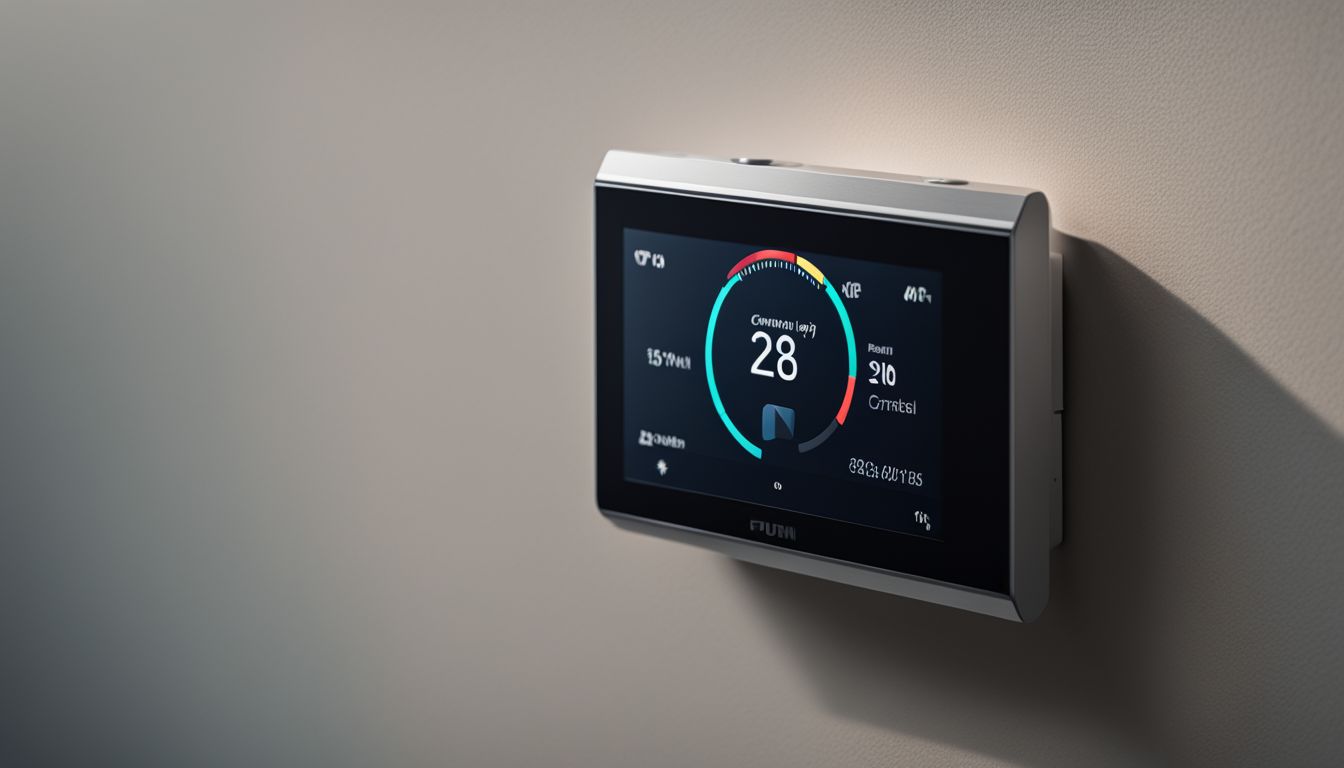
Make sure your thermostat is set to the right mode for cooling. It should be switched to ‘cool’ and not ‘heat’. The temperature you set must be below the room’s current temperature.
Try lowering it by a few degrees to see if it kicks on your AC.
Sometimes thermostats need new batteries or get dusty inside. Change the batteries if needed and clean gently with a soft brush. If problems continue, call an HVAC professional who can check wiring and function.
Remember, tuning up your AC helps prevent issues like this, so schedule regular checks each year.
Inspect for Leaks
After confirming that your thermostat settings are correct, turn your attention to potential leaks. Look for signs of water around the indoor unit, which could point to a clogged condensate drain or a faulty condensate pump.
These issues often lead to water damage in the home and need quick action.
Search for any wet spots or dampness near the hvac system’s air vents and ducts too. These might indicate refrigerant leaks, requiring prompt repair to prevent inefficiencies in cooling and airflow.
Neglecting these leaks can cause serious harm to the compressor due to fluctuating refrigerant levels and inadequate lubrication. Regularly inspecting for leaks will keep your ac running smoothly and help maintain good indoor air quality.
Clean Your AC Unit Regularly
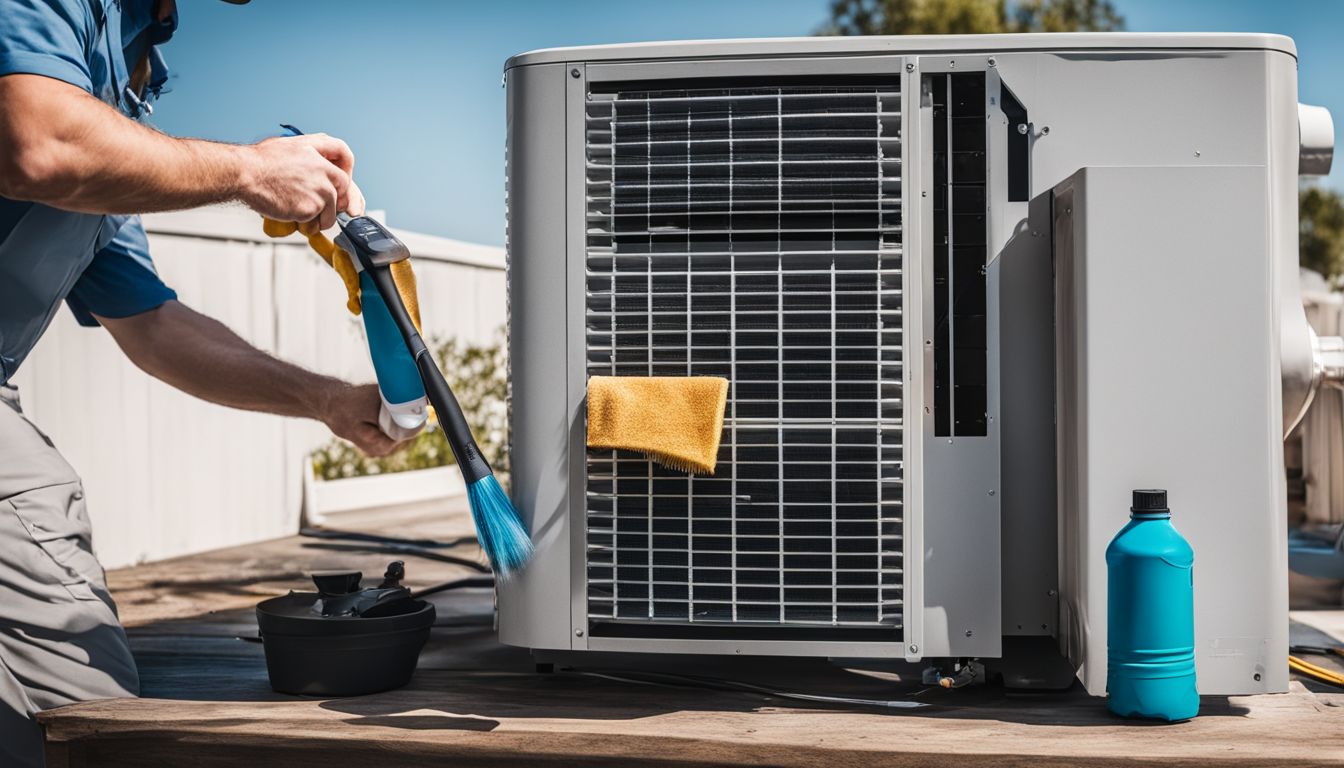
While checking for leaks is crucial, keeping your AC unit clean can prevent many issues. Dust and dirt on the coils hamper an air conditioning system’s ability to function efficiently.
Make it a habit to wipe down the outside of your unit and clear any debris like fallen leaves or twigs that might block airflow. Inside, focus on the evaporator coil; a dirty one may freeze up, causing your AC to falter.
Regular cleaning also extends the life of the parts inside your AC. The blower motor and other components stay in better shape when there’s no build-up of grime. A clean air conditioner doesn’t have to work as hard, which saves energy and keeps bills lower.
Plus, you’ll enjoy fresher air without that annoying stench sometimes found in neglected systems.
Regularly Change Your Filters
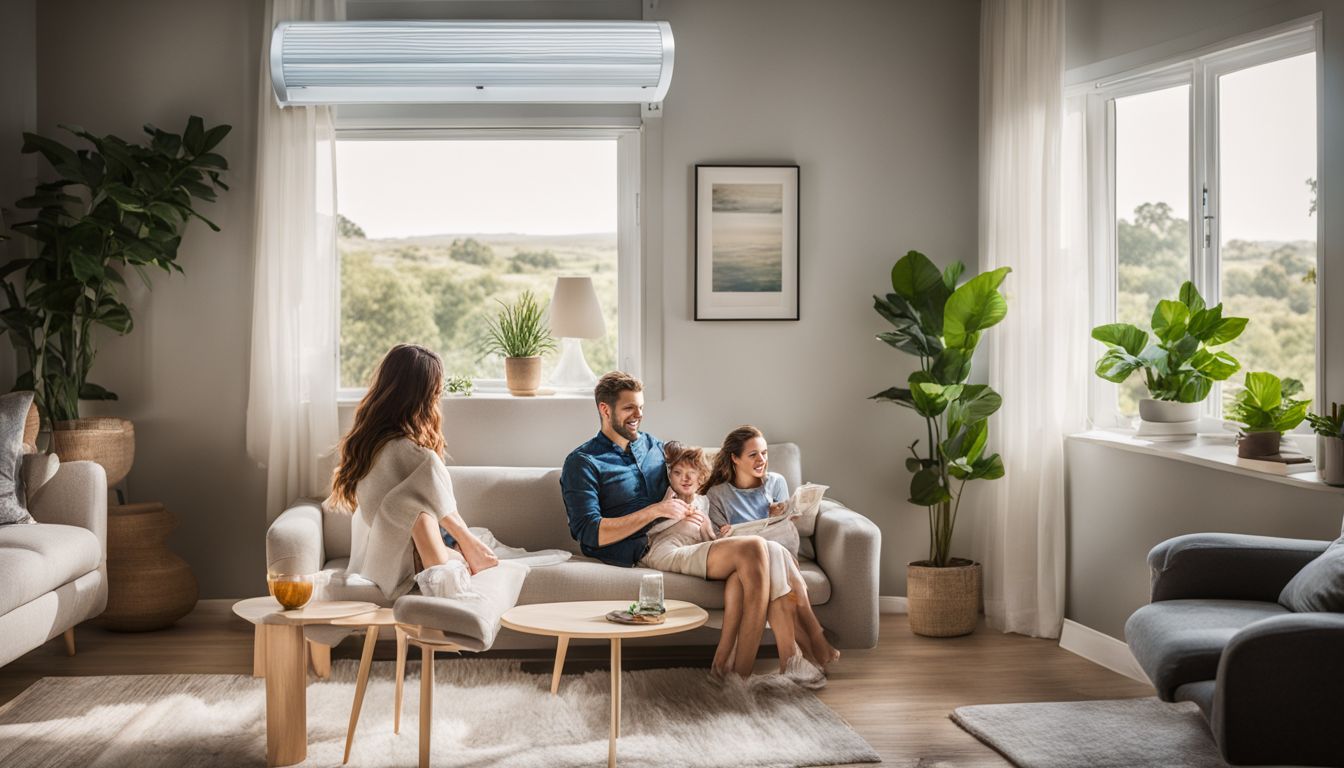
Your aircon’s filters play a key role in keeping the air clean. If they get too dirty, your AC might freeze up or start smelling bad. To stop these problems, change the filters often.
This helps your AC run smoothly and keeps the air fresh.
Make sure to pick the right size and type of filter for your system. Doing this can lower energy costs and extend your AC’s lifespan. It also cuts down on dust and allergens in your home.
After changing filters, it’s smart to schedule regular maintenance checks for other parts of your unit.
Schedule Regular Maintenance Checks
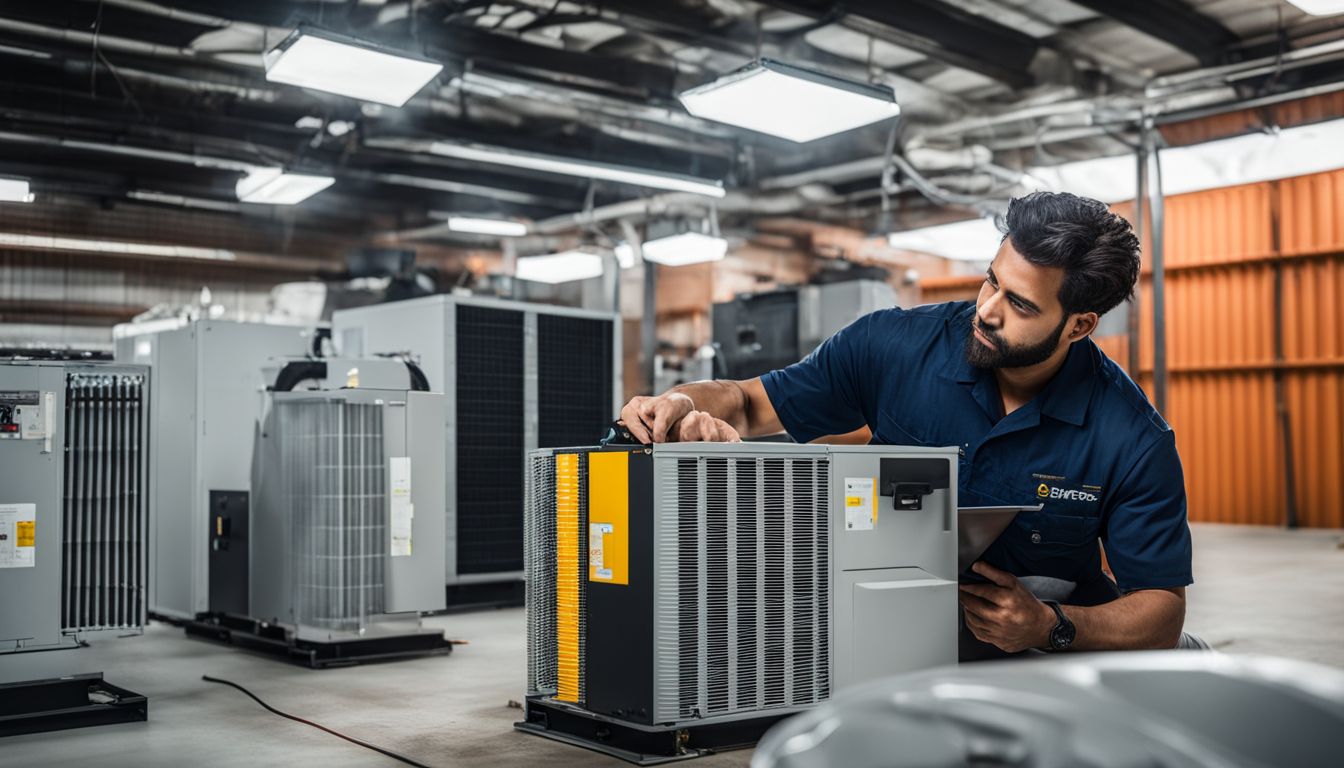
Book a professional to inspect your air conditioning unit regularly. They will spot problems early and save you money on big repairs. Consistent checks keep your machine running smoothly and may avoid electrical mishaps.
An expert can clean parts, check for wear, replace filters, and ensure everything works as it should. This way, you’ll stay cool without unexpected breakdowns or high energy bills.
Conclusion
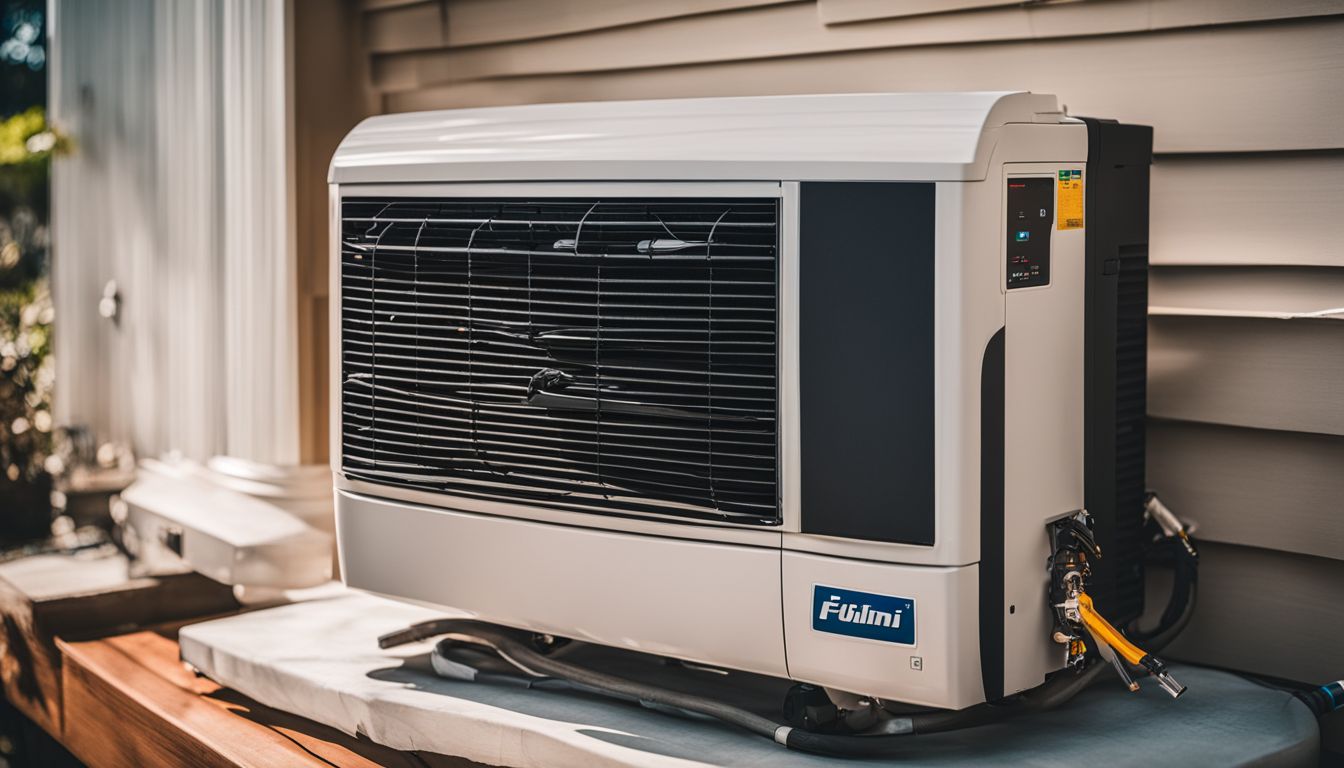
Taking good care of your air conditioning system helps prevent gas issues. Remember to clean and service your unit regularly. If you notice problems, acting fast can save money and hassle.
Keep your cool by tackling AC issues head-on. Trust professional help when needed to keep your aircon running smoothly.
For an in-depth understanding of aircon gas topping and distinguishing between myths and realities, be sure to read our detailed guide Navigating Facts and Fiction: Aircon Gas Topping.
FAQs
1. What should I check first if my air conditioning system stops working?
First, look at the circuit breakers or fuse box to see if there’s a blown fuse or tripped breaker. Also, check your air conditioner’s settings.
2. Why is my central air not cooling the room well?
Make sure your AC filters are clean and check your room’s exposure to sunlight. If it’s still a problem, you might need an expert to inspect the expansion valve or compressor.
3. Can humidity affect how my heating and air conditioning unit works?
Yes, high humidity can make your AC work harder. Use a dehumidifier or get energy saving features like a smart thermostat for better control.
4. Should I call an electrician if my A/C keeps turning off?
If checking the fuses and circuit breakers doesn’t fix it, then yes, call an electrician as there may be electrical issues with your HVAC systems that need professional attention.
5.What could be wrong when there’s no cold air from my Kenmore room air conditioner?
There might be something wrong with the heat pump or other parts of the ACs system which prevents cold airflow in cabin-like spaces; a technician can solve this issue.
6.How do I find out if I need to replace my old central air conditioning unit?
AC problems that keep happening often mean you need an air conditioner replacement but always consult with professionals by providing them with details such as postal code for local advice.
